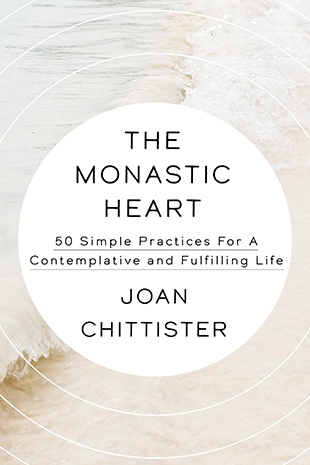"Zeal, you see, is a strange word. When it's used in everyday English, it means fervor -- enthusiasm. But the word zeal entered the English language in the early fourteenth century, a period of intense religious warfare. Then zeal had two completely different meanings, the second of which is often extreme or fanatical as to a religious movement. The distinction is an important one. Of all the feelings common to religious passion, it's zeal that most divides the holy from the unholy. which means, as Benedict, the founder of the oldest strain of communal monasticism in the Western world, implies, there is such a thing as excess, which spoils religion. But the distinction between good zeal and fanaticism is clear:
"Good zeal leads us to love more, to hurt less, to defend the defenseless, to bring justice to populations that are being oppressed, to love the God who created and loves us all. All of us. No exceptions. The good zeal of monastics includes caring for the stranger, listening to the needs of one another, immersing themselves in prayer and reflection, caring for the earth, and saving the planet. It also means choosing common sense over extremism when, as the Rule says, the choice is to 'pray in the fields' rather than risk lives in order to get back to the monastery in time for community prayer.
"Fanaticism is self-aggrandizement posing as holiness by living the incidentals of religious devotion to the ultimate. Instead of fasting for a day, fanatics fast for a month, until weakness makes it impossible to actually live a really holy life. Or they set out to shame those whose morals they disapprove of. Like those religious groups who condemn alcoholics to starvation on Skid Row rather than accept alcoholism as a disease and get them help. Or condemn women sex workers for prostituting themselves to get the kind of money no other job will pay a woman.
Integrating the Practice
"Fanaticism pours ignominy and disdain on those who cannot keep up with the physical expectations of asceticism or the extremes of virtue. Worse, fanaticism demands the kind of false obedience that specious religious leadership requires as proof of commitment to themselves. Then the obedience of free will which God requires of us is turned into spiritual immaturity, and though it may not have evil intentions, it is never fully adult.
"The fact is that fanaticism, excessive passion even for the good, has done as much harm in the world as it has done good. Fanaticism drove the Crusades. Fanaticism drove the Reformations. Fanaticism drove the Wars of Religion. Fanaticism is pseudo religion to an extreme. Fanaticism is Jim Jones, whose hundreds of disciples in Jonestown, Guyana, followed him to mass suicide in 1978. There is a point at which religion itself can become evil. But no part of evil -- for any cause whatsoever -- is holy.
"The test of good zeal is a simple one: it is goodness after goodness so that life can be good for everyone because you have been here. It is Jesus ministering to the masses who were abandoned and rejected by the holiest professional figures of the Temple.
"The reality of evil zeal is clearly with us still. It is evident in the religious types of our own time who reject gay and transgender people. The presence of God is as open to them as it is to anyone else, but instead they get labeled disordered by so-called religious figures around them. It is demonstrated by the Church's attitude toward girls who want to be priests but are disdained for believing that God might want them to follow Jesus, too. It's clear in religion that makes men God and women their servants.
"Holiness, on the other hand, is a religious founder reminding his followers before he dies that religion can be as bad as anything else in life -- unless we are following religion in all its beneficence in order to become good ourselves. In these words we find hope, possibility, goodness, and God.
"Benedict writes: 'This, then, is the good zeal which members must foster with fervent love.: "They should each try to be the first to show respect to the other (Rom 12:10)," supporting with the greatest patience one another's weaknesses of body or behavior, and earnestly competing in obedience to one another. No one is to pursue what s/he judges better for herself/himself, but instead, what s/he judges better for someone else. Among themselves they show the pure love of sisters/brothers; to God, reverent love; to their Prioress/Abbot, unfeigned and humble love. Let them prefer nothing whatever to Christ, and may Christ bring us all together to everlasting life.'
"And that is what this whole book has been about: good zeal, not evil.
"The test of good zeal is a simple one: It is goodness after goodness so that life can be good for everyone because we have been here. It is Jesus ministering to the masses who were abandoned and rejected by the holiest professional figures of the Temple."
